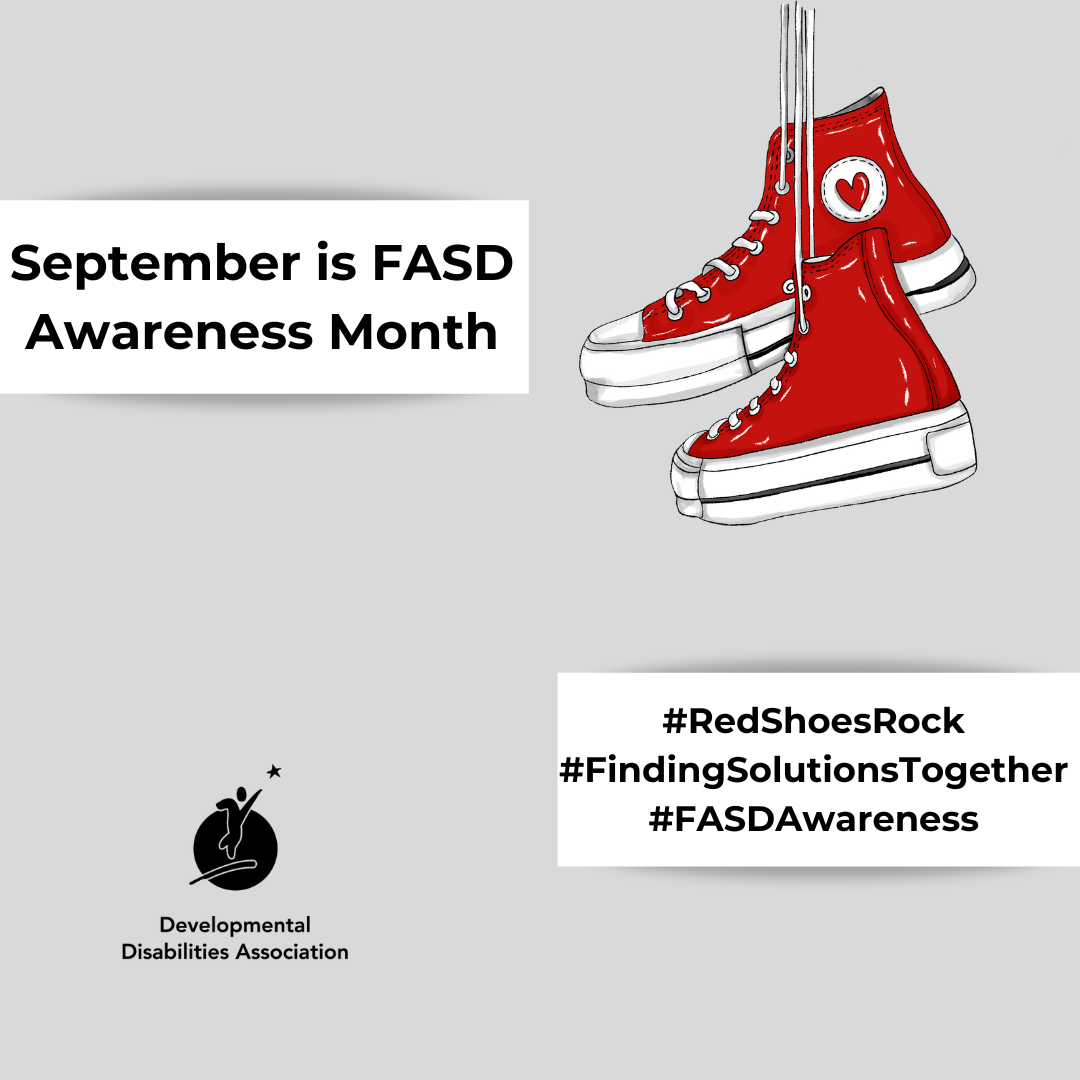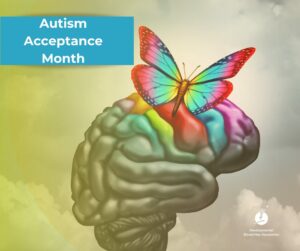September is Fetal Alcohol Spectrum Disorder (FASD) Awareness Month, and this blog will delve into what FASD is, its potential effects, and the importance of support for people who have it.
FASD affects people whose mothers consumed alcohol during pregnancy. It’s crucial to raise awareness about FASD, as early diagnosis and proper support can significantly improve the quality of life for those affected.
Many clients that DDA supports have FASD and the severity of the condition varies from person to person which can lead to a diverse set of cognitive challenges.
1. The Impact of FASD
- Individuals may struggle with retaining information and learning new skills.
- Problems with executive functions, such as planning, organization, impulse control, and decision-making, are common.
- Difficulties in understanding social cues and appropriate behavior can hinder social interactions and relationships.
- Physical and Sensory Impairments
- Some individuals may have growth delays or facial abnormalities.
- Sensory processing issues, such as sensitivity to light, sound, or touch, can be present.
2. Diagnosis and Early Intervention
Diagnosing FASD is challenging, as there is no specific test and symptoms can overlap with other conditions. Diagnosis often involves comprehensive assessments of cognitive and behavioral functioning and medical history.
Early intervention is critical in managing the challenges associated with FASD. It can include educational support tailored to individual needs, speech, and occupational therapies, and behavioral interventions to address specific difficulties.
3. Creating a Supportive Environment
Education and Awareness
Raising awareness about FASD within communities, schools, and healthcare settings is vital. Understanding the condition reduces stigma and ensures that individuals with FASD receive the understanding and support they need.
Structured and Predictable Routines
Individuals with FASD often thrive in structured environments with predictable routines. Consistency helps them better navigate daily tasks and reduces anxiety.
Empathy and Patience
Caring for someone with FASD requires patience and empathy. Behavioral challenges may arise from the individual’s struggles, and responding with understanding is key to maintaining a positive and supportive relationship.
For more information, go to Canada FASD Research Network.



